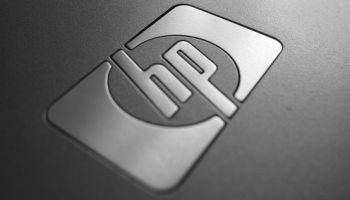A media report has suggested that Hewlett-Packard executives are reconsidering the controversial decision to get rid of the $41 billion (£26bn) PC division.
Rather than spin it off into its own company or sell it, HP may end up keeping the Personal Systems Group, according to an 12 October story in the Wall Street Journal, citing “people familiar with the matter.”
New CEO Meg Whitman is reviewing the company’s recent moves under her predecessor, Leo Apotheker, who was fired in September after less than a year on the job. Among the criticisms of Apotheker were some jarring changes in strategy, and then reversals of some of those decisions.
New Vision
Apotheker in August announce his intentions to remake HP into a company more focused on enterprise services and software and less dependent on low-margin hardware sales. He outlined a plan to spin off the market-leading PC business, to end development of mobile devices – in particular smartphones and tablets – running the webOS operating system, and to buy software maker Autonomy for $10 billion (£6.7bn).
The moves drew mixed reviews, though analysts were not surprised by Apotheker’s decision, given his deep background in software. He was CEO of software giant SAP before being fired from there in early last year. Some analysts argued that the moves would make HP a more competitive company, while others said that HP risked losing a good chunk of its customer base and supply chain advantages.
 Upon taking the reins at HP, Whitman – the one-time eBay CEO who was a member of HP’s board of directors – said she believed in the direction HP was heading under Apotheker, though she questioned the execution. She also said she would review every facet of the company, leading some to believe that she could reverse the decision on the PC business.
Upon taking the reins at HP, Whitman – the one-time eBay CEO who was a member of HP’s board of directors – said she believed in the direction HP was heading under Apotheker, though she questioned the execution. She also said she would review every facet of the company, leading some to believe that she could reverse the decision on the PC business.
Earlier this month, Whitman said she expected to move up the timeline for making a decision, from December to October, though admitted that it could take longer than this month. A quick decision on the fate of the PC business would help HP stave off rivals who are looking to poach customers from the tech giant.
Board Dithering?
Whitman reportedly also is close on making a decision around webOS, with news stories saying that decision would be revealed during an all-hands employee meeting 12 October. While Apotheker had said he wanted to send production of devices running webOS – which HP acquired last year when it bought mobile computing company Palm for $1.2 billion (£762m) – he was considering licensing the mobile operating system to third parties.
HP’s board has drawn criticism for its actions not only over the past year or more – when it fired Mark Hurd as CEO in August 2010 and then hiring of Apotheker in October – but over the course of a decade or so, starting with Carly Fiorina’s tenure at the helm of HP. Part of the criticism stems from the board members’ desire to look outside the company for CEOs, rather than groom HP executives for the job.
“HP has gone through a lot of changes over the last decade, ever since they started hiring their CEOs from outside the company,” Rob Enderle, principal analyst at The Enderle Group, said in a research note 12 October. “This exercise largely failed to get the results the company wanted because HP’s board failed to get talent or form teams that could run the company effectively over a sustained period. The board also failed to put in place a solid succession plan so that HP could grow top executive teams internally.”
The results of not finding candidates from within HP “have been particularly painful for HP,” Enderle wrote. “Carly Fiorina’s failure came because she lacked operations capabilities. Mark Hurd had operations skills but lacked vision and over-cut funding for critical organisations. Leo Apotheker’s strategic vision resonated with the board but he lacked operations skills (meaning he couldn’t execute).”





